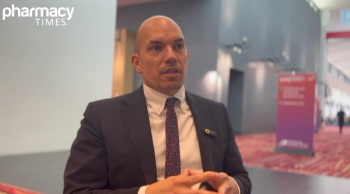
Finerenone plays an emerging role in managing complex heart failure with preserved ejection fraction (HFpEF).

Finerenone plays an emerging role in managing complex heart failure with preserved ejection fraction (HFpEF).

The COBBRA trial compared bleeding risk with rivaroxaban vs apixaban in patients with acute venous thromboembolism.

Dave’s Pharmacy in Alliance, Nebraska, was named the Pharmacy of the Year for cutting-edge patient care.

Independent pharmacy owners Raj Chhadua and Marc Ost are turning to AI-powered tools to streamline operations, improve efficiency, and enhance patient engagement—without sacrificing the personal touch.

From vaccine drives and prescriber dinners to YouTube education and automated workflows, these pharmacy owners are finding innovative, hands-on ways to expand services, boost revenue, and stay connected to the communities they serve.


Keri Bates, PharmD, shares how the nomination validates years of hard work, highlights the deep relationships built with the community, and inspires continued growth and innovation.

Pharmacy-based clinical services demonstrate both public health impact and financial sustainability.

Innovative pharmacist-led care models—from tech-enabled Afib screenings and HPV immunizations to Medicare-supported diabetes prevention—demonstrate how pharmacies are redefining their role in team-based clinical care.

Empowering pharmacy technicians enhances team efficiency, improves patient care, and fosters a positive work culture, driving pharmacy success in a competitive landscape.


Bates' insights offer a roadmap for creating a sustainable pharmacy workforce while strengthening patient care and operational efficiency.

Annie Eisenbeis, PharmD, MBA, showcased how Missouri’s Pharmacy Vaccine Gap Closure Program is transforming pharmacy-based immunization services through scalable workflows, team training, and a redefined role for pharmacy technicians as community health workers.

Lara Zakaria, PharmD, introduced the topic of pharmaconutrition, urging pharmacists to integrate food, lifestyle, and gut health into patient care through evidence-based, practical interventions.


Packed with CE sessions, interactive learning, expert insights, and a vibrant expo floor, McKesson ideaShare 2025 aims to equip independent pharmacists with the tools and strategies to elevate patient care and drive pharmacy innovation.

The conference offers immersive, peer-driven education tracks designed to help independent pharmacies innovate, adapt, and thrive in a changing health care landscape.

Host Craig Beavers sits down with Kazuhiko Kido, PharmD, a clinical associate professor at the West Virginia University School of Pharmacy, to discuss intravenous iron and its use in patients with heart failure.

The FDA approves dupilumab as the first targeted treatment for bullous pemphigoid, offering hope for patients with this debilitating skin condition.

In today’s rapidly evolving health care landscape, pharmacists are playing an increasingly vital role in patient care��—but many policymakers remain unaware of the full scope of their expertise and contributions.

From protecting the 340B Drug Pricing Program to expanding payment pathways through state-level reforms and Medicare Advantage opportunities, Kraus emphasized the critical role pharmacists play in evolving care models.

Host Craig Beavers chats with Shannon Finks, PharmD, FCCP, BCPS, BCCP, AHSCP-CHC, president and director of pharmacy services at ZupMed in Memphis, Tennessee.

New executive orders and legislation aim to lower prescription drug costs and enhance access to pharmacist services for seniors across the US.




As policy developments unfold rapidly at both the state and federal levels, Tom Kraus highlights the expanding scope of pharmacist practice through a wave of state-level legislation as a key opportunity.

A multidisciplinary team enhances psychiatric care by empowering community pharmacists to administer long-acting injectable antipsychotics, improving patient adherence and outcomes.

The findings highlight the need for improved prescribing practices and patient outcomes.

Standardized online modules ensure consistent, high-quality care in collaborative practice agreements.